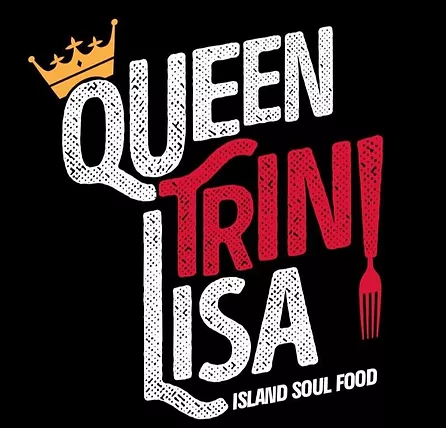
This article is about food but it also, to my eye, shows that there are many working toward the same thing with little coordination. There is the light house project and now this one. Neither mentions the other.
At her restaurant Queen Trini Lisa, chef Lisa Nelson gives her customers a taste of different tropical influences, from her native Trinidad and Tobago, the southernmost islands of the Caribbean, to her adopted home in New Orleans, known as the northernmost port of the Caribbean. Today, her Mid-City restaurant is also better able to cope with some of the hazards of life in this region and provide neighbors with a dose of critical, potentially lifesaving, assistance in the aftermath of the next severe storm. On a blistering hot recent morning, a crew arrived to install an array of solar panels on the roof and a state-of-the-art battery storage system inside. Thus equipped, Queen Trini Lisa will be able to keep its refrigerators cool, its ice machine cranking and its electrical outlets available the next time the neighborhood loses power. “This can be a little hub of support, and that’s what I want to provide,” said Nelson, while cooking a batch of jerk chicken for the installation crew from local provider Solar Alternatives. “This is a community restaurant — I’m surrounded by my customers here,” she said. “They’re the foundation of my business, so I want to take care of them.” Queen Trini Lisa is the first example of a new program that is out to make neighborhood restaurants around New Orleans into independent nodes for community support in times of crisis.
nola.com
They can provide ice and charging stations for the community with the greatest need being a place to keep medical supplies that need refrigeration.
In a prolonged power outage, Nelson envisions opening the restaurant for people to charge phones and plug in medical devices, get ice or hot food or perhaps just cool off for a bit. “I depend on insulin and I need my medication refrigerated so I’m just imagining how many people out there need that too,” she said. The solar and battery equipment was provided free of charge to the restaurant by a new initiative called Get Lit Stay Lit, which is out to show the potential for neighborhood businesses in neighborhood support roles after a disaster. The program came together swiftly after the experience of Hurricane Ida, when some of the first grassroots disaster response in New Orleans came through small independent restaurants. With the electricity out and the city sweltering, these small businesses became spontaneously provided a respite, with some giving away their perishable inventory and others simply offering a plug to charge a phone by generator power. Get Lit Stay Lit was conceived to harness this impulse for a more organized, better-equipped response in the future.
This was the idea of Glass Half Full and Feed the Second Line, both startups that help the community.
It is a collaboration between two groups that have proven themselves through the pandemic. One is Glass Half Full, a nonprofit started last year to fill the gap for glass recycling in the city. The other is Feed the Second Line, the nonprofit behind a host of programs to preserve New Orleans culture and create jobs. Through the pandemic, these have included paying restaurants to feed frontline health care workers and paying unemployed artists to construct house floats for Mardi Gras. The solar and battery systems are not cheap. The one now in place at Queen Trini Lisa cost $83,000, which Get Lit Stay Lit covered fully. Plans for systems at three more restaurants are now underway. Since announcing the program last fall, fresh from the Ida experience, the initiative has brought in $93,000 in individual contributions, mainly through its website, and also drawn grant funding totaling $300,000, said Feed the Second Line founder Devin De Wulf said. De Wulf’s vision for where the program can go is broad. “The goal for us is that every neighborhood in New Orleans is better prepared, and that would require hundreds of restaurants having this kind of system,” he said.
The aim is to install in a couple and then show the potential for spreading the project.
One aim of these early projects is to demonstrate value in potential of the approach, and spur further investment. “I think it would be a great investment in our city’s infrastructure to do this. By launching it and getting as many done as we can, we’re hoping the state or local government will fund the concept and take it further,” he said. De Wulf saw the impact his own battery-stored solar power system made in his Bywater neighborhood, from charging friends’ phones to keeping one neighbor’s oxygen machine running. He sees Get Lit Stay Lit as a way to help “storm-harden” individual businesses, so that they don’t lose as much inventory after a power failure, and also to strengthen the mutual aid that emerged between restaurants and among neighborhoods. “A lot of people just can’t evacuate because it’s expensive; even in a major hurricane you’ll have a lot of people who just won’t leave and that’s for economic reasons,” De Wulf said. “So we wanted to focus on restaurants in working class neighborhoods. We saw through COVID how chefs and restaurants can step up for their community, and there are lots of restaurants that fit the bill for this.”
The government funds in different ways but the thought that if resiliency was required, more people would benefit and that funds would go farther and do more.
The government funds disaster response in different ways. He argues for using it to support better resiliency in the community before a crisis. “Is a smart use of money paying outside people to come in here to cook after a disaster, or is a smarter use outfitting local people to cook for each other and provide for each other?” he said. Personal safety comes first in this program, and restaurant participants are not required to stay during a storm. Nelson‘s plan is to evacuate if the storm threat to the city looks severe, and then return as soon as possible to make the restaurant available. “Queen Trini can’t swim, so I’ll leave if it looks bad but I’ll be back,” Nelson said. “You need to stay safe, but then when we come back, we’ll be ready to help.”
I think these are good ideas and a boon to the community but there should be some coordination and have them work together so that you do not have overfilled areas and areas of nothing.



